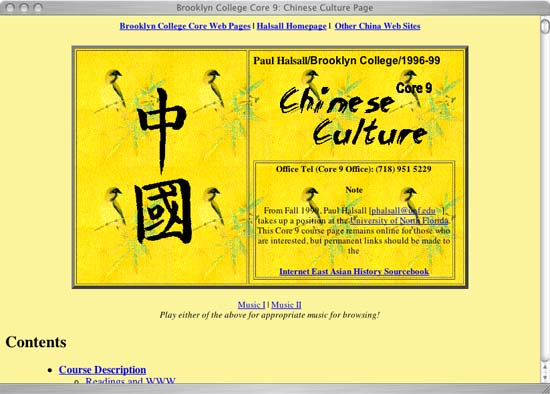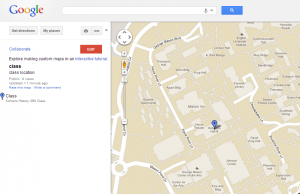Google Maps
Are You Secure?
When I read Matt Honan’s How Apple and Amazon Security Flaws Led to My Epic Hacking I thought it was really entertaining and very clever of the hackers. When he explained how all is accounts got hacked one after the other because they shared information I was shocked.
I really like that he was able to get in contact with the hackers and find out exactly how they did this and also try if it works on other peoples account.
It was interesting when Honan was talking about Apple and how you only need the email billing address and the last four digits of a credit to change the account but in Amazon the last four digits are something that are not considered secured and are shared.
“Amazon tech support gave them the ability to see a piece of information — a partial credit card number — that Apple used to release information. In short, the very four digits that Amazon considers unimportant enough to display in the clear on the web are precisely the same ones that Apple considers secure enough to perform identity verification.”
I thought that was really interesting because I would think that big companies like Apple and Amazon that are commonly used would have some sort of contact about security measure to prevent this from happening.
I especially think that Amazon need to step up with security. I thought it was hilarious when Honan described how the hackers got his credit card info through Amazon.
“First you call Amazon and tell them you are the account holder, and want to add a credit card number to the account. All you need is the name on the account, an associated e-mail address, and the billing address. Amazon then allows you to input a new credit card. (Wired used a bogus credit card number from a website that generates fake card numbers that conform with the industry’s published self-check algorithm.) Then you hang up.
Next you call back, and tell Amazon that you’ve lost access to your account. Upon providing a name, billing address, and the new credit card number you gave the company on the prior call, Amazon will allow you to add a new e-mail address to the account. From here, you go to the Amazon website, and send a password reset to the new e-mail account. This allows you to see all the credit cards on file for the account — not the complete numbers, just the last four digits.”
Amazon needs to really do some some more things for their security measures…
Its scary to think about..
Ethical, Legal, or Not?
While looking at the TIME Magazine Corpus of American English I quickly thought that this website was obviously illegal and unethical because it has information from TIME magazine without consent. The site has magazine publications all in the copyright range… But I played and fiddled on the site I realized that I don’t really think that it is even though it looks that way from the surface.
The website seems to not have broken and of the ‘Fair Use’ guidelines.
- It seems the purpose for this site is to inform people of the words or phrases used in TIME Magazine in all its years published.
- The the work itself is not fully shown. The most shown from the magazine is a sentence before the word you searched and a sentence after.
- The website itself is not receiving any profit from using this information.
I wanted to look further into the purpose of the website (even though it was very hard to figure out how things work) I found this tool on comparing the word you searched for in TIME Magazine publications to the word in Google Books.
So.. I thought I would look for a word that I thought just became famous in the past decade. I searched for “terrorist” It was interesting to see that TIME has published the word terrorist since 1923. It was explaining Russia ruin. The words use over the decades has increased rapidly except for a decrease in the 80s and 90s. Its been used from describing Nazis , and Irish republicans to the modern use today.
The Amen Break
This I found was completely ridiculous. I had no idea so many musicians were unoriginal and just copied from past artists. Its just really interesting. I thought it was interesting the sampling also was considered “making something new from something old.”
In the Copyright Criminals one man stated
” We live in a remix culture and the laws have to change to allow this culture to do what it does.”
I think that to an extent certain sampling should not be against copyright laws like taking one note from an artist but should have a certain length limit or something.
Evaluating Websites and Wikipedia
The first time in grade school and I had to do some sort of research project the class would always go to the library and the librarians would find books for us related to our topics and tell us websites that would also help with our search. They would also have a little session explaining to us what type of websites are reliable to use for your websites. So I always had a sort of idea what looks reliable.
Just as this article says I was always taught to trust websites that end with .edu or .gov.
Even though I have been taught not to really trust websites by just searching through Google I sometimes fell into just doing a quick Google search. If I clicked a link for a site that look disorganized and I could not easily find what I was looking for I would automatically exit that page.
Design, Organization and Ease of Use
Design, organization and ease of use are important considerations. Web sites can provide useful sources of information; but if they are slow to load, difficult to navigate, search or read, then their contribution or usefulness will be diminished.
I thought it was really interesting seeing the Wikipedia article change overtime slowly. It was especially cool that it was changing minute by minute with the vandalism.
I think overall it was really cool and its amazing to see that just random people do this to all the wiki sites.
Scavenger Hunt
Trying to find these things!
1) An op-ed on a labor dispute involving public school teachers from before 1970
- STEP ONE: went to library.gmu.edu
- STEP TWO: went to JSTOR database
- STEP THREE: searched ((Labor dispute) AND (public school teachers)) AND (year:[1950 TO 1970])
- FOUND : link HERE
2) The first documented use of solar power in the United States
- STEP ONE: went to library.gmu.edu
- STEP TWO: searched for a science database
- STEP THREE: could not find anything on solar energy so went to JSTOR
- FOUND: link HERE (NOT SURE IF IT IS CORRECT! THIS WAS REALLY HARD!)
3) The best resource for the history of California ballot initiatives, including voting data
- STEP ONE: went to library.gmu.edu
- STEP TWO: search polls and data
- STEP THREE: chose Applied Social Sciences Index and Abstracts (ASSIA)
- FOUND: California voting trends
this assignment was surprisingly harder than I thought…
Thoughts of…Becoming Digital
In my opinion I think digitization has way more advantages than disadvantages.
I think the one major thing that digitization allows that is the biggest advantage is the accessibility for people all around the world. People that would normally never get the opportunity to see or learn from all the things that have become digitized.
Another MAJOR THING: Less trees used!
Digitization has also makes it easier to read things . For example
“You can find your way through them by using a simple word search, as with the “Find” command in Microsoft Word. Large collections of page images, however, usually need additional information and tools so that readers can locate their desired topic or folio.”
These things allow persons an ease when reading long texts etc.
When Digitizing things way to do it is by scanning the original text. Currently at my job at Career Services at Mason, I have been scanning records from the early 90’s and sending them straight to an email to keep them in new records. The scanner had an automatic sheet feeder.
I think when digitizing things that are delicate and rare you should use a commercial vendor. I wouldn’t want to take the risk of doing something wrong and messing up. But if your not worried its cheaper to just do the scanning.
“If you are not worried about the materials, it may be cheaper to send them off for scanning, as the Million Book project at Carnegie Mellon University is doing by crating up books and shipping them to India. “
One quick last thing I find very interesting is this…” A medical transcriptionist (a position probably comparable to many jobs in data conversion) earns between $1.50 and $2.00 per hour in India and $13 per hour in the United States. Not surprisingly, in the current political climate of concern over the outsourcing of American jobs, most cultural institutions would rather avoid talking about where their digitizing is being done.” I never realized how much of a pay difference people around the world receive…
Thoughts of… Getting Started: Basic Technologies Behind the Web
When I read Getting Started: Basic Technologies Behind The Web I was pretty surprised by the whole process of choosing when wanting to make your own website.
The process includes things like
- Choosing a server
- technological requirements
- content
- etc..
The basic outline of the reading is steps on how to decide or make your website.
Getting Started
Steps..
- Figuring out what a website is and if you actually need one
- What genre and what features should be including in your page (text,images, multimedia)
- Database or XML
- What type of server should you use (commercial,ISP)
- Finally naming your site and presenting it to the world

Thoughts
I really thought this reading was really informative to a person who has no idea about websites and technology. It takes the person step by step into the decision making process and makes it seem a lot easier. It also informed a bit about all the possible decisions you could choose.
Quick quote I really liked! You can find it here.
“Like the proverbial tree falling in the forest, the Google page came into existence only when a user wanted to view it, and it vanished once the viewer moved on. Google search results, thus, lack the reassuringly fixed quality of cards in an old-fashioned library catalog.”
When I read the above quote I thought it was very interesting because I have never thought of it that way or even had known that Google works like that.
Thoughts about As We May Think By VANNEVAR BUSH
As soon as I begin to read this article I begin to feel OVERWHELMED! I notice a lot of technical words that completely go over my head. I stop reading and begin to read again (much slower) just so I can get some sort of a grasp about what Bush is actually talking about.
When I begin to read the article a second time I start to understand what Bush is trying to relay. He wants to talk about all the possibilities that technology can have on society. Topics ranging from photography and the modern keyboard. It completely shocked me that he is writing all this in 1945!
He explains how WWII has been a war that involved not only soldiers but scientist. This was a war that involved technology and needed the help of scientists to win. He quickly states that scientists have not been able to focus on their own projects because they must focus on the war.
Bush explains that technology has improved every aspect of life for the individual and will continue to benefit human for many years to come.
“Of what lasting benefit has been man’s use of science and of the new instruments which his research brought into existence? First, they have increased his control of his material environment. They have improved his food, his clothing, his shelter; they have increased his security and released him partly from the bondage of bare existence. They have given him increased knowledge of his own biological processes so that he has had a progressive freedom from disease and an increased span of life. They are illuminating the interactions of his physiological and psychological functions, giving the promise of an improved mental health.”
He predicts how technology will continue to change. One example he uses is the how photography will continue to progress.
“Certainly progress in photography is not going to stop. Faster material and lenses, more automatic cameras, finer-grained sensitive compounds to allow an extension of the minicamera idea, are all imminent.”
I am just shocked that all is predictions came true! And it leaves me wondering what are scientist predicting now and will it come true?
History 390
This blog was created for my history 390 class! Never really experienced blogging but who knows I just might like it!

